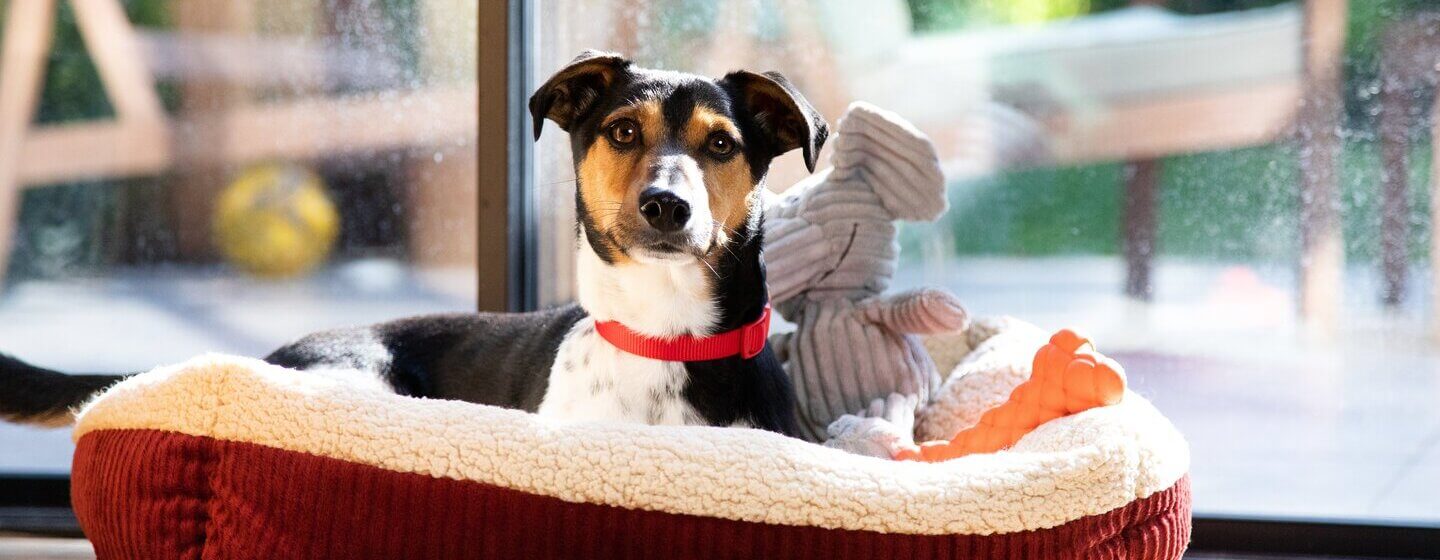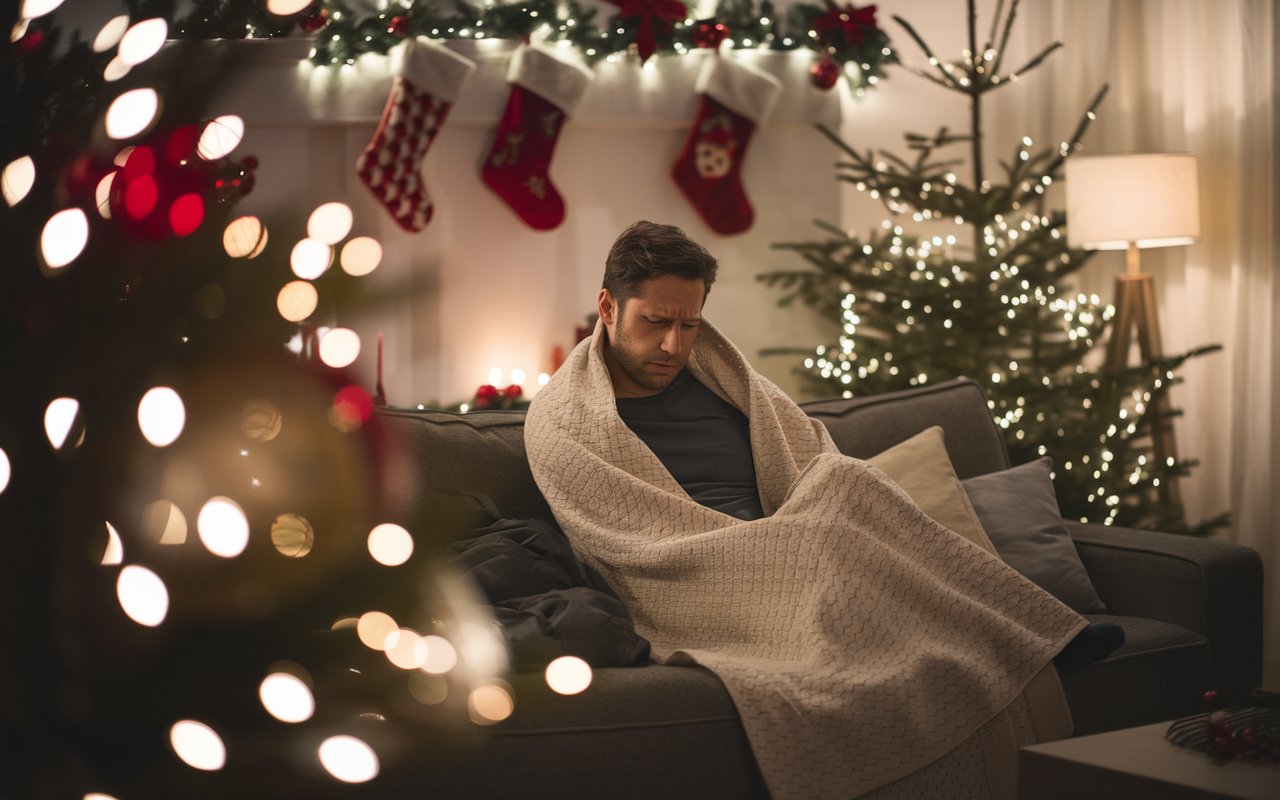Having your puppy sleep in your room can comfort both you and your pet. It helps puppies feel safe and secure, aiding in their development.
Deciding on the best sleeping arrangements for your new puppy is crucial for both their emotional well-being and your peace of mind. Introducing your pup to their new environment includes establishing a routine that promotes feelings of safety and belonging.
Many experts agree that allowing your puppy to sleep in your room can significantly reduce nighttime anxiety and help build a strong bond between you and your pet. Creating a designated sleeping space within your room, like a crate or dog bed, gives your puppy their own comfortable spot while keeping them close. It also simplifies potty training, as puppies often signal when they need to go out, and being nearby enables a quick response, ensuring a clean, stress-free sleeping area.
The Great Debate: Puppies Sleeping In Human Beds
Puppy parents often ponder where their furry friend should snooze. The choice to let them hop into bed stirs up passionate opinions. Let’s explore the reasons and reservations behind this cozy controversy.
Pros Of Having Your Puppy Close At Night
Security and comfort shine as top benefits of keeping your puppy close. Here’s a breakdown:
- Quick potty training: You’ll hear when they need to go out.
- Stress reduction: Puppies feel safer, easing their transition.
- Better sleep: Both you and your puppy may sleep more deeply.
- Stronger bond: Sharing a bed grows your connection fast.
Concerns And Drawbacks To Consider
Sleeping with a puppy isn’t all cuddles and comfort. Potential issues may arise:
- Allergies: Puppy dander may trigger sneezes and sniffles.
- Disrupted sleep: A wriggly pup can interrupt your z’s.
- Dominance issues: Pets may feel entitled to the bed, leading to behavioral challenges.
- Size matters: As puppies grow, space can become tight.

Credit: www.thepuppyacademy.com
Bonding Benefits: Strengthening Your Connection
Raising a puppy opens up a world of joy and companionship. One decision might help nurture this bond stronger: where should your puppy sleep? Let’s dive into the benefits of room sharing and the impact on your puppy’s bond with you.
How Proximity Affects Puppy-human Bonds
Sharing a living space with your puppy, especially during nighttime, can significantly impact the emotional connection between you and your furry friend. Here’s how:
- Fosters security: Puppies feel safer with their owners close by.
- Boosts attachment: Proximity can strengthen attachment, much like in parent-child relationships.
- Facilitates training: Easier to monitor and manage nighttime behavior.
Balancing Attention And Overdependence
While close proximity fosters bonding, it’s crucial to strike a balance. Consider these points:
| Balance Tip | Explanation |
|---|---|
| Set boundaries: | Train your puppy to respect personal space. |
| Alone time: | Schedule periods away to encourage independence. |
| Consistent routine: | Helps the puppy understand when to expect attention. |
Training Implications: Setting The Stage For Good Habits
Training Implications: Setting the Stage for Good Habits — this is what every puppy parent needs to ponder. Deciding whether your puppy should sleep in your room involves training considerations. It’s not just about comfort; it’s about instilling discipline and consistency from the get-go. With the goal of raising a well-behaved dog, let’s delve into creating positive routines and responses.
Nighttime Routines And Obedience Training
Establishing nighttime routines is crucial for your puppy’s sense of security. A schedule helps puppies understand what to expect. Here’s what you can include:
- Set Bedtime: Choose a specific time for lights out.
- Last Call for Bathroom: Encourage a potty break right before bed.
- Comfort Zone: Provide a cozy bed in your room or nearby.
Engage in short obedience training sessions before bedtime. This includes:
- Command practice like ‘sit’ and ‘stay’.
- Encouraging calm behavior for treats.
- Gentle play to tire your puppy out.
Managing Night Wakings And Potty Needs
Puppies often wake up during the night. Sometimes, they might need to go out for a potty break. Here’s a simple plan to manage this:
| Puppy Wakes | What to Do |
|---|---|
| First Check | Is it a potty alert? If yes, take them out. |
| Comfort | If not, offer a reassuring pat or a soft ‘shh’ sound. |
| Return | Placed back in bed to promote self-settling. |
Remember, consistency matters. Nighttime routines reinforce training, helping your puppy to learn quickly and efficiently. Set clear boundaries, and be patient. Soon, these habits will form the foundation of a happy, well-adjusted adult dog.
Creating Comfort: Preparing Your Room For Your Puppy
Welcoming a puppy into your home brings joy and a unique set of responsibilities, especially when it comes to sleep. Creating a comfortable environment in your room for your puppy is crucial. This preparation ensures that your new furry friend feels secure and sleeps soundly through the night.
Essentials For Your Puppy’s Sleep Space
First, focus on the bedding essentials for your puppy. Choose a soft, warm bed that is just the right size. Puppies love cozy spaces that make them feel safe.
- A comfortable bed or crate with a blanket
- Water-resistant cover to guard against accidents
- Chew-proof toys for comfort and distraction
Place the bed in a quiet corner of your room to reduce disturbances. Make sure it’s away from windows to avoid drafts.
Ensuring Safety Throughout The Night
To keep your puppy safe, remove any hazards from your room:
- Secure electrical cords out of reach
- Keep small items and toxic plants away
- Block off spaces where a puppy could get stuck
| Item | Action |
|---|---|
| Medications | Store in closed cabinets |
| Window Blind Cords | Keep shortened or tied up |
Ensure the room is sleep-friendly with a comfortable temperature and minimal noise.
Navigating Challenges: What To Expect
Welcoming a new puppy into your home brings joy and a set of challenges. One common question is whether or not a puppy should sleep in your room. Making the right choice requires understanding what to expect, including potential hurdles and behavioral issues.
Dealing With Separation Anxiety And Whining
Puppies often feel scared in new environments. At night, this can lead to whining and signs of separation anxiety. To tackle this, ensure your puppy has a comfortable bed and a well-worn piece of clothing with your scent on it. The familiar smell can provide comfort.
Expect some sleepless nights at first. Consistency with bedtime routines is crucial. Ignore whining unless it continues for prolonged periods or seems out of character. Consult a vet if whining persists or escalates.
Use calming aidsSet a bedtime routineStay consistent with your approach
Transition Strategies For Moving Puppy Out Later
As your puppy grows, you may want them to sleep independently. Plan this transition carefully. Start by moving your puppy’s bed gradually further from yours each night. This slow move helps them adjust without stress.
Introduce the new sleep area with positive associations. Place toys and treats to make the new spot inviting. Spend time there during the day to build familiarity. Use reward-based training to encourage your puppy to spend time in the new area.
| Transition Step | Activity | Timeframe |
|---|---|---|
| 1 | Introduce new sleeping area | Day 1-3 |
| 2 | Place bed in new area during the day | Day 4-6 |
| 3 | Begin with short naps | Day 7-10 |
| 4 | Overnight sleep | Day 11+ |
Remember, patience is key. Each puppy is unique and may require more time to adjust.

Credit: www.purina.co.uk
Expert Opinions: Veterinary And Trainer Insights
Deciding where your puppy should sleep often brings a mix of excitement and confusion. Pet professionals, including veterinarians and trainers, offer valuable guidance. They focus on health benefits and behavior training.
Experts agree that a puppy’s sleeping location affects their well-being and development. Your choice should ensure comfort and security for both you and your furry friend.
Health Perspective On Sleeping Arrangements
Veterinarians emphasize the health implications of your puppy’s sleep spot. A puppy’s immune system develops as they grow. Quality sleep in a safe environment is crucial.
Dogs are pack animals. Close proximity at night can mean less stress. Less stress can lead to better health for your puppy. Yet, experts warn that if your puppy is not yet potty trained, your room might not be ideal.
Professional Tips For Successful Co-sleeping
Many trainers encourage room sharing during the early stages of puppyhood. This can strengthen the bond between you and your pet.
- Create a designated sleep area such as a dog bed or crate in your room.
- Establish a bedtime routine to help your puppy understand when it’s time to settle down.
- Maintain consistency in sleep schedules, even on weekends.
- Ensure that the sleeping area is quiet and comfortable for your puppy.
- Consider safety, such as keeping small objects away that your puppy could chew on.
Remember, successful co-sleeping with your puppy can lead to a happy and harmonious household.
Frequently Asked Questions For Should My Puppy Sleep In My Room
Is It Good For A Puppy To Sleep In My Room?
Sleeping with a puppy in your room can be beneficial. It fosters a strong bond, provides comfort to the puppy, and makes nighttime potty trips easier. However, it’s important to ensure the puppy has a designated sleeping area to promote independent sleeping habits.
What Are Benefits Of Puppies Sleeping In Bedrooms?
Allowing a puppy to sleep in your bedroom can reduce anxiety, provide warmth, and increase the feelings of security for both the puppy and owner. It also simplifies monitoring their well-being and behavior during the night.
How Do I Train My Puppy To Sleep In My Room?
Start by establishing a comfortable, dedicated space for your puppy to sleep in your room. Use positive reinforcement to encourage bedtime routines. Consistency is key. Keep evening activities calm to signal bedtime and ease the transition to sleep.
Can A Puppy’s Sleep Habits Impact My Sleep Quality?
Yes, sharing a room with a puppy can both positively and negatively impact your sleep. While their presence can be comforting, puppies might disrupt sleep with movement or needs for nighttime potty breaks. Proper training and routines can minimize disturbances.
Conclusion
Deciding on your puppy’s sleeping arrangements is a personal choice. Gauge their comfort and your sleep quality. Remember, consistent habits and a safe space matter most. For more pet care tips, explore our blog. Trust your instincts and prioritize well-being, for both you and your furry friend.





Leave a Reply